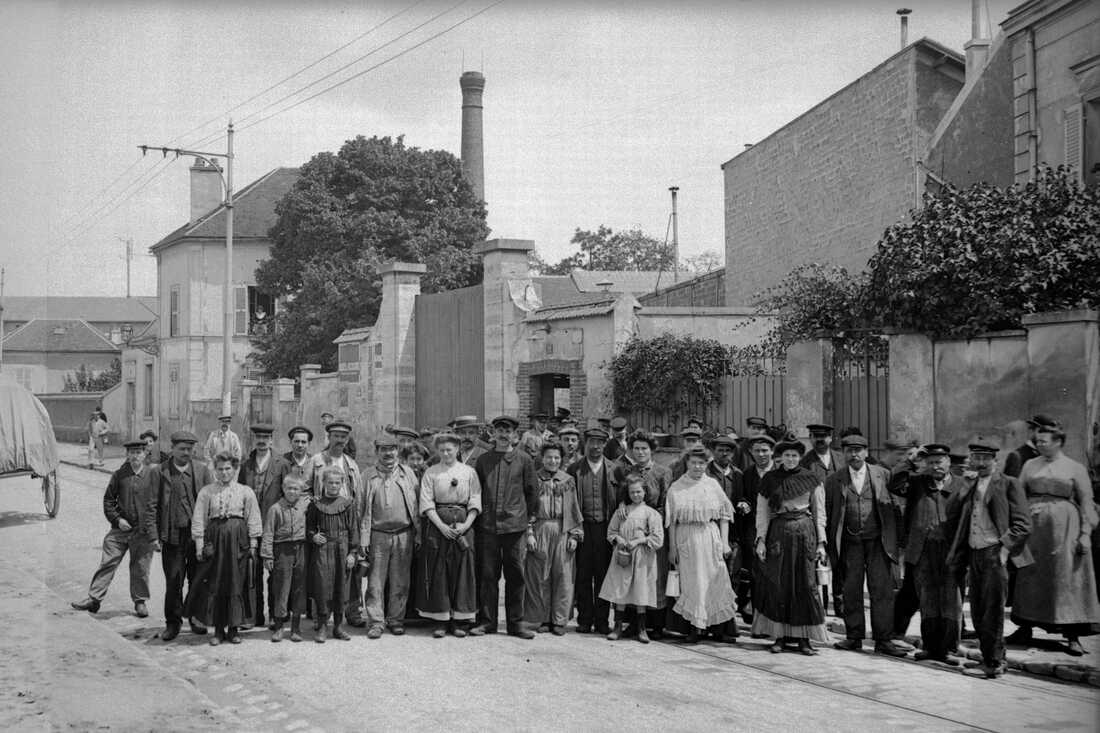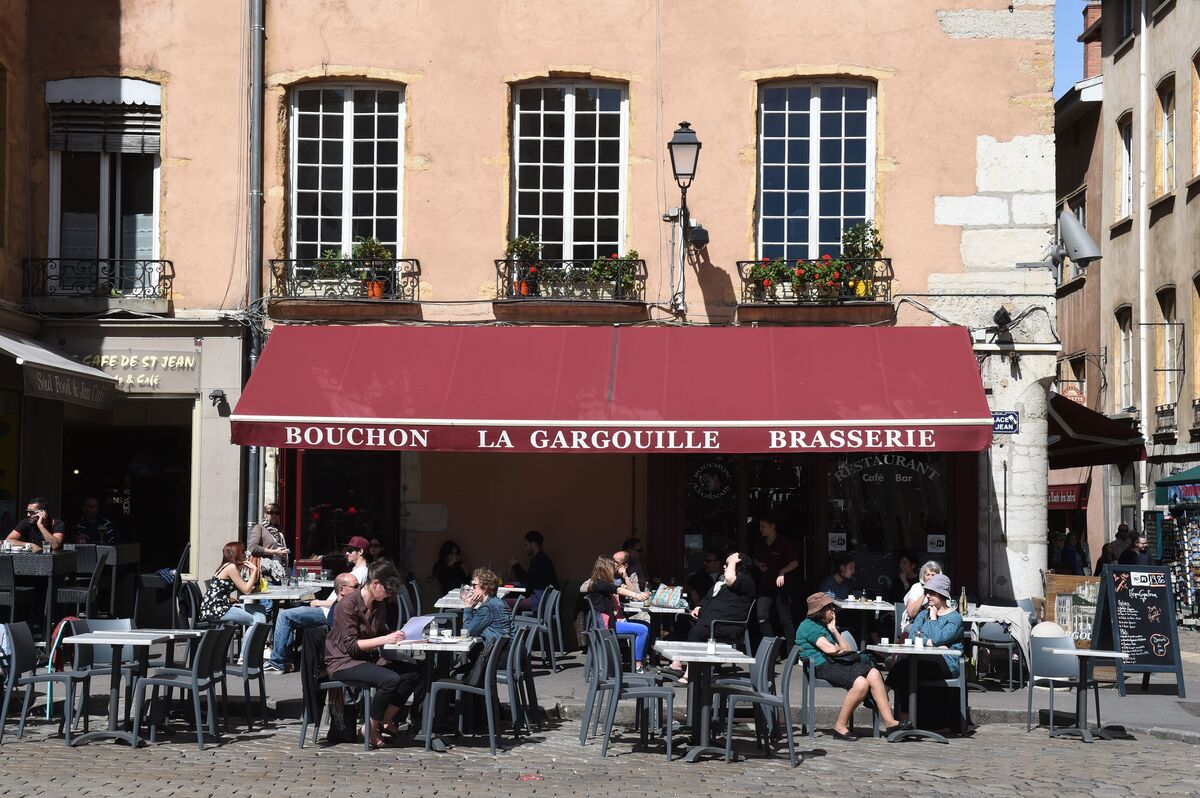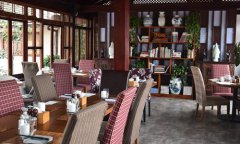
Enlarge this image
People sit at La Gargouille's cafe terrace on Saint-Jean Square in Lyon, France, in 2016. Philippe Desmazes/AFP via Getty Images hide caption
toggle caption Philippe Desmazes/AFP via Getty Images
People sit at La Gargouille's cafe terrace on Saint-Jean Square in Lyon, France, in 2016.
Philippe Desmazes/AFP via Getty ImagesThis story is adapted from the latest episode of Rough Translation. Listen on Apple Podcasts, Spotify or NPR One.
Eating a salad at your desk may not be the most memorable kind of lunch, but at least you can get some work done. In France, that's forbidden.
The French labor code prohibits workers from eating lunch in the workplace. The solo work lunch is also shunned in a culture that prizes a change of pace — and scenery — during the midday meal.
Listen to this story's podcast episode
Listen · 30:48 30:48
Toggle more options
Download
Embed
<iframe src="https://www.npr.org/player/embed/1103463809/1103916026" frameborder="0" scrolling="no" title="NPR embedded audio player">
But the French lunch break wasn't always about bistros, leisurely meals and 90 minutes of amiable conversation. Many workers originally rejected the idea of leaving the workplace at all.
So what did it take for the French to finally take a break?
It turns out that the French lunch break was born during a public health crisis and was nearly killed in another.
Germ theoryThat's the argument food-culture historian Martin Bruegel makes.
"The workplace in the 1890s was full of health hazards," he says.
As cities grew and more workers had to travel to factories on the other side of town, their eating habits changed. The midday meal, traditionally made to be eaten at home, entered a new carryout phase. Lunch pails became increasingly common at the workplace. French fries bought at local markets were an occasional treat. Most of the actual eating was done on the factory floor.

Enlarge this image
Workers stand at the exit of the Rattier factory in Bezons, France, circa 1905. Lunch pails became increasingly common at the workplace during that era in France. ND/Roger Viollet via Getty Images hide caption
toggle caption ND/Roger Viollet via Getty Images
Workers stand at the exit of the Rattier factory in Bezons, France, circa 1905. Lunch pails became increasingly common at the workplace during that era in France.
ND/Roger Viollet via Getty ImagesPicture workers picking at their food with their fingers in matchbook factories, seamstress sweatshops and warehouses full of heavy machinery. From airborne tuberculosis to phosphorus fumes, these work sites were far from sanitary. "Even in department stores, there were more microbes and germs per cubic feet than outside."
In his recent essay, "Covid-19, Workday Lunch and the French Labor Code," Bruegel looked into the connection between the Industrial Revolution and the Great French Lunch Break.
As diseases spread, doctors discussed how to clean the air in dirty workspaces.
First, you had to get the people out. "The saying was that we have to flush the work sites as we flush toilets," Bruegel says. "What is the best time to do that? It's usually when people eat!"
The government's answer: ban lunch in the workplace. Get the people outside and then open the windows to clear out the germs. That was the idea behind the 1894 decree that banned lunch at the workplace.

Enlarge this image









